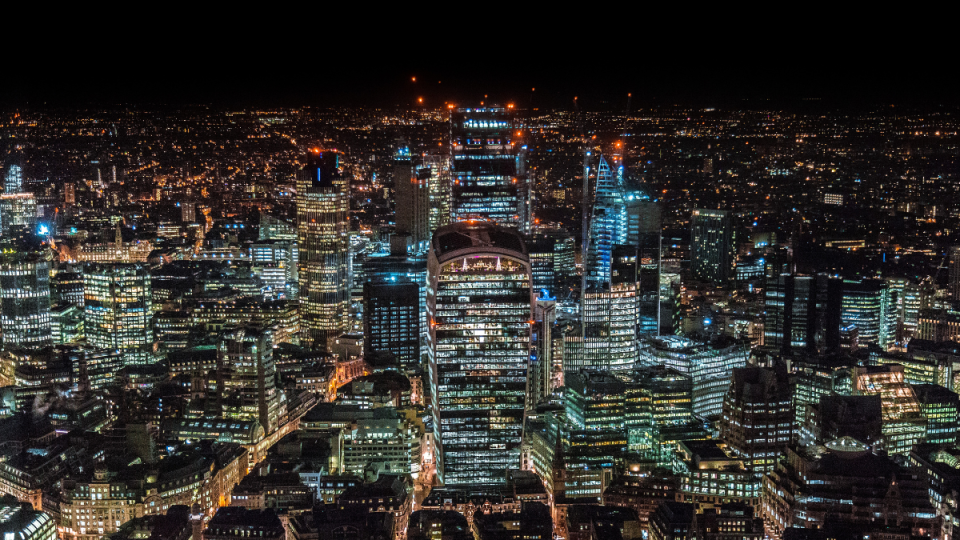
Why We Should Live Near Landfills

Imagine you’re transported back to a time some several hundred years ago, tasked with explaining to the people of that time the concept of landfills. My guess is you would have a pretty hard time. Not so much because landfills are a difficult concept to understand, but because waste simply had not been invented yet.
I know that’s a strange sentence to read, but waste was a human invention. For the largest portion of human history, society was built with bricks from mother nature’s kiln. And those bricks were designed with the end of their life cycles in mind. A tree grows from the ground, it falls onto the ground, decomposes back into the ground, and the cycle continues.
Enter a couple hundred years of human development, a few agricultural and industrial revolutions, and our model of production looks something like this: we use heavy machinery to dig into the ground for petroleum, which undergoes a process called polymerization to create polyethylene terephthalate (PET), before it is formed into pellets, extruded, blow molded, cooled, and filled with 500ml of water. You can buy this stupendously complex creation for the unbelievable price of £1, and consume it in a few seconds before sending it to a landfill, where it will spend the next 450 years.

“So yeah, that’s why we need landfills”, you say to your medieval friend. He still doesn’t understand.
The point I’m trying to make is we’ve become so far detached from the waste we produce that we don’t realise the absurdity of it all. Why have we rationalised this linear model of consumption that is draining natural resources and heating the planet? A small contributing factor is that landfills are far, far removed from human settlements. We rarely think about them, let alone see them, so our wasteful tendencies appear to be of no consequence (I’m not here to actually advocate moving closer to landfills, if you were starting to worry).
But waste isn’t just in your bins, and in landfills. I work in the City of London – the city that never sleeps. A wildly incorrect epithet, by the way: the city definitely sleeps, only with the lights on. In fact, a bright skyline is the first thing you’ll notice if you find yourself taking a midnight stroll: a view into the deserted offices so carefully illuminated for passersby like yourself. But if you also had a clear view of the gas that was being burned to keep those lights on, I’m sure you wouldn’t mind being deprived of that sight.
Energy waste is an epidemic in commercial real estate. On average, 30% of the energy used in commercial spaces is wasted – on lighting, HVAC, and poorly operated building management systems. Depending on where you are in the world, it’s highly likely that this energy was generated from highly polluting sources, making this waste all the more inexcusable.
To really complicate matters, the landfill for energy waste isn’t anywhere remotely accessible – it’s located in the troposphere, some 20 km above our heads. And it’s invisible. So when it comes to energy waste, we can’t exactly live near its landfill. Instead, we have to constantly remind ourselves of the consequences of our waste, without any visual cues.
You may have come across some energy saving initiatives (like Dark January!) which aim to be this reminder. They are awareness campaigns on energy waste. They’re basically saying “Hey, you’re probably wasting energy without realising it. But it’s not your fault because it’s very difficult to see the immediate impact of this waste, so it’s easy to forget. But this is a reminder. So, you know, stop wasting energy please”
The impact of it is two-fold: for starters, you are lowering your energy usage. Wonderful. But possibly more importantly, you’re exerting influence on others (another invisible phenomenon!). If you talk about energy waste or act against energy waste, others will see you. And when they see you, they might start doing the same as you. And in turn, other people will see them. And the wheel goes round. Turning off your lights might seem futile, but it carries a causal effect on the behaviour of others. Aggregated actions (no matter how small) will always lead to meaningful results over time. James Clear even wrote a book about this!
If we lived next to landfills or if the greenhouse effect was bright orange, we might not need the energy saving initiatives. But those things are impractical or impossible, so raising awareness on waste becomes a collective task, and the instructions are simple: turn off your lights, and get others to do the same. Thank you for playing your part.
Sami Mustapha has a Master’s in sustainable development from King’s College London. Before joining Metrikus, he worked at CDP on corporate ESG reporting.

Sami Mustapha, ESG & Sustainability Lead at Metrikus